Finding the Perfect Ear Piercing: A Guide to Jewelry Stores Near You
Related Articles: Finding the Perfect Ear Piercing: A Guide to Jewelry Stores Near You
Introduction
With great pleasure, we will explore the intriguing topic related to Finding the Perfect Ear Piercing: A Guide to Jewelry Stores Near You. Let’s weave interesting information and offer fresh perspectives to the readers.
Table of Content
Finding the Perfect Ear Piercing: A Guide to Jewelry Stores Near You
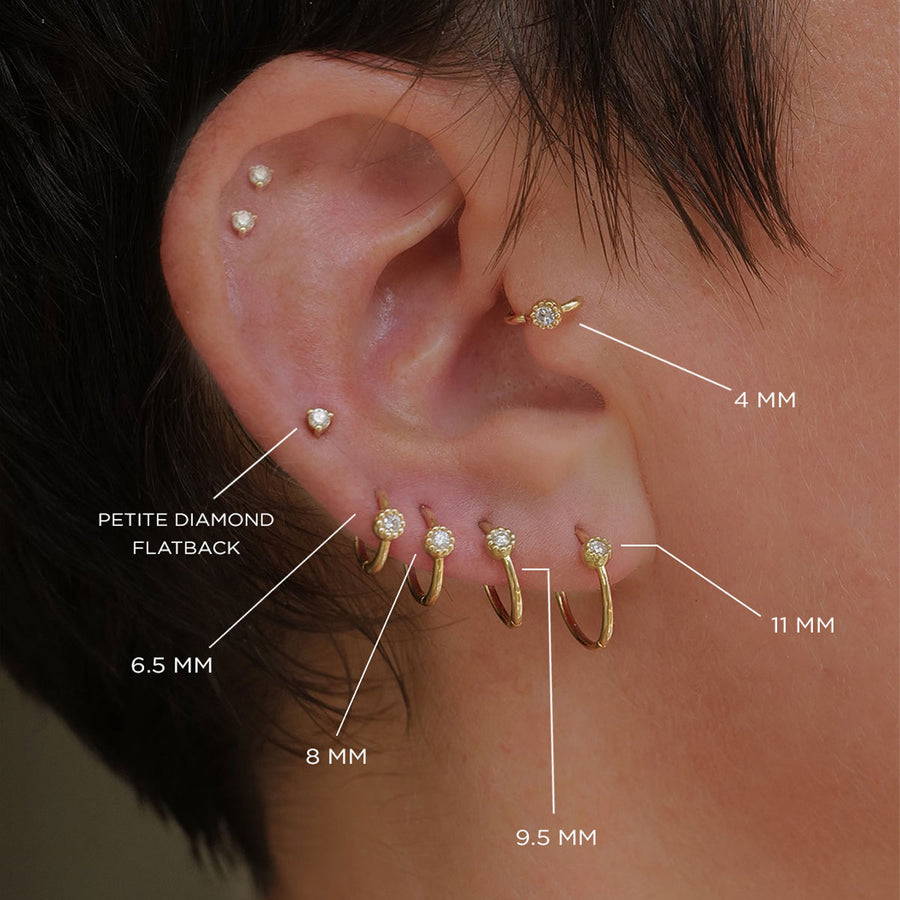
The decision to get your ears pierced is a personal one, often marking a milestone or a statement of individual style. Whether you’re a first-timer or a seasoned piercing enthusiast, finding the right jewelry store for your needs is crucial. This comprehensive guide provides insights into navigating the world of ear piercing, focusing on the key factors to consider when choosing a store near you.
The Importance of Choosing a Reputable Jewelry Store
While ear piercing might seem like a simple procedure, choosing the right establishment can significantly impact the overall experience and the health of your ears. Opting for a reputable jewelry store ensures:
- Professionalism and Expertise: Skilled piercers understand the anatomy of the ear and utilize proper techniques to minimize pain and complications. They are trained in sterile procedures and adhere to industry-recognized safety standards.
- Quality Jewelry: Reputable stores offer a wide selection of high-quality jewelry made from hypoallergenic materials, minimizing the risk of allergic reactions. This ensures your piercing heals properly and looks its best.
- Hygiene and Safety: Strict adherence to sterilization protocols and the use of single-use needles are paramount in preventing infections. Reputable stores prioritize a clean and sanitary environment to ensure your safety.
- Aftercare Guidance: Experienced piercers provide comprehensive aftercare instructions, crucial for proper healing and avoiding complications.
Key Factors to Consider When Choosing a Jewelry Store
When searching for a jewelry store that offers ear piercing, several factors should be considered:
- Reputation and Reviews: Online reviews and testimonials provide valuable insights into the quality of service and customer satisfaction. Look for stores with positive feedback and a track record of happy clients.
- Location and Convenience: Choose a store conveniently located within your area, minimizing travel time and ensuring easy access for aftercare visits.
- Pricing and Services: Compare pricing for piercing services and jewelry options, ensuring transparency and value for money.
- Consultation and Expertise: A reputable store will offer a consultation to discuss your piercing preferences, answer your questions, and guide you through the process.
- Selection of Jewelry: Look for a wide variety of high-quality jewelry options in different materials, styles, and sizes, catering to diverse tastes and preferences.
How to Find Jewelry Stores That Pierce Ears Near You
Finding a suitable store is easier than ever with readily available resources:
- Online Search Engines: Utilize search engines like Google, Bing, or DuckDuckGo, entering keywords like "ear piercing near me" or "jewelry stores that pierce ears in [your city]."
- Online Directories: Websites like Yelp, TripAdvisor, or Yellow Pages offer listings of local businesses, including those offering ear piercing services.
- Social Media Platforms: Social media platforms like Facebook, Instagram, or Twitter can be valuable resources, allowing you to search for local stores and view customer reviews.
- Word of Mouth: Seek recommendations from friends, family, or colleagues who have had positive experiences with ear piercing services.
Frequently Asked Questions (FAQs) About Ear Piercing
Q: What is the recommended age for ear piercing?
A: The recommended age for ear piercing varies depending on individual factors and cultural norms. However, it’s generally advised to wait until a child is old enough to understand the procedure and participate in the aftercare process. Many professionals recommend waiting until a child is at least six years old.
Q: What are the different types of ear piercings?
A: There are numerous types of ear piercings, each with its unique placement and aesthetic appeal. Common types include:
- Lobe piercings: The most traditional and common type, located on the lower lobe of the ear.
- Helix piercings: Located on the upper rim of the ear, offering versatility in jewelry selection.
- Cartilage piercings: Piercings on the various cartilages of the ear, including the helix, conch, and tragus.
- Industrial piercings: A piercing that connects two points on the ear, usually the helix and the forward helix.
Q: What should I expect during the piercing process?
A: The piercing process typically involves:
- Consultation: Discussing your piercing preferences, the chosen jewelry, and any concerns you might have.
- Marking: The piercer will mark the desired piercing location using a sterile marker.
- Piercing: The piercing is performed using a sterile needle, which is inserted through the earlobe or cartilage.
- Jewelry insertion: After the piercing is completed, the piercer will insert the chosen jewelry.
Q: What are the aftercare instructions for ear piercings?
A: Aftercare is essential for proper healing and avoiding complications. Follow these guidelines:
- Cleanse the piercing twice a day: Use a saline solution or a mild antibacterial soap to gently clean the piercing.
- Avoid touching the piercing: Keep your hands clean and avoid touching the piercing unnecessarily.
- Do not rotate or twist the jewelry: Allow the piercing to heal undisturbed.
- Avoid harsh products: Avoid using alcohol, hydrogen peroxide, or other harsh cleaning agents on the piercing.
- Sleep on your back: Avoid sleeping on the pierced ear to minimize pressure and irritation.
- Follow-up appointments: Schedule follow-up appointments with the piercer to monitor the healing process.
Q: What are some common complications of ear piercing?
A: While ear piercing is generally safe, complications can occur, especially if proper hygiene and aftercare are not followed. Common complications include:
- Infection: This can occur if the piercing is not kept clean or if the jewelry is not properly sterilized.
- Keloid formation: These are raised scars that can develop around the piercing site.
- Allergic reaction: Some people may experience allergic reactions to certain types of jewelry.
- Rejection: The body may reject the piercing, causing it to migrate or close up.
Q: What are some tips for choosing the right jewelry for my ear piercing?
A: When selecting jewelry, consider:
- Material: Opt for hypoallergenic materials like titanium, surgical steel, or gold.
- Size and shape: Choose jewelry that fits comfortably and complements your ear shape.
- Style: Select jewelry that reflects your personal style and preferences.
- Quality: Invest in high-quality jewelry that is durable and long-lasting.
Conclusion
Choosing the right jewelry store for your ear piercing is an essential step towards a safe and enjoyable experience. By considering the factors outlined above, you can find a reputable establishment that offers professional service, quality jewelry, and comprehensive aftercare guidance. Remember, proper hygiene, aftercare, and following the advice of your piercer are crucial for a successful piercing journey.

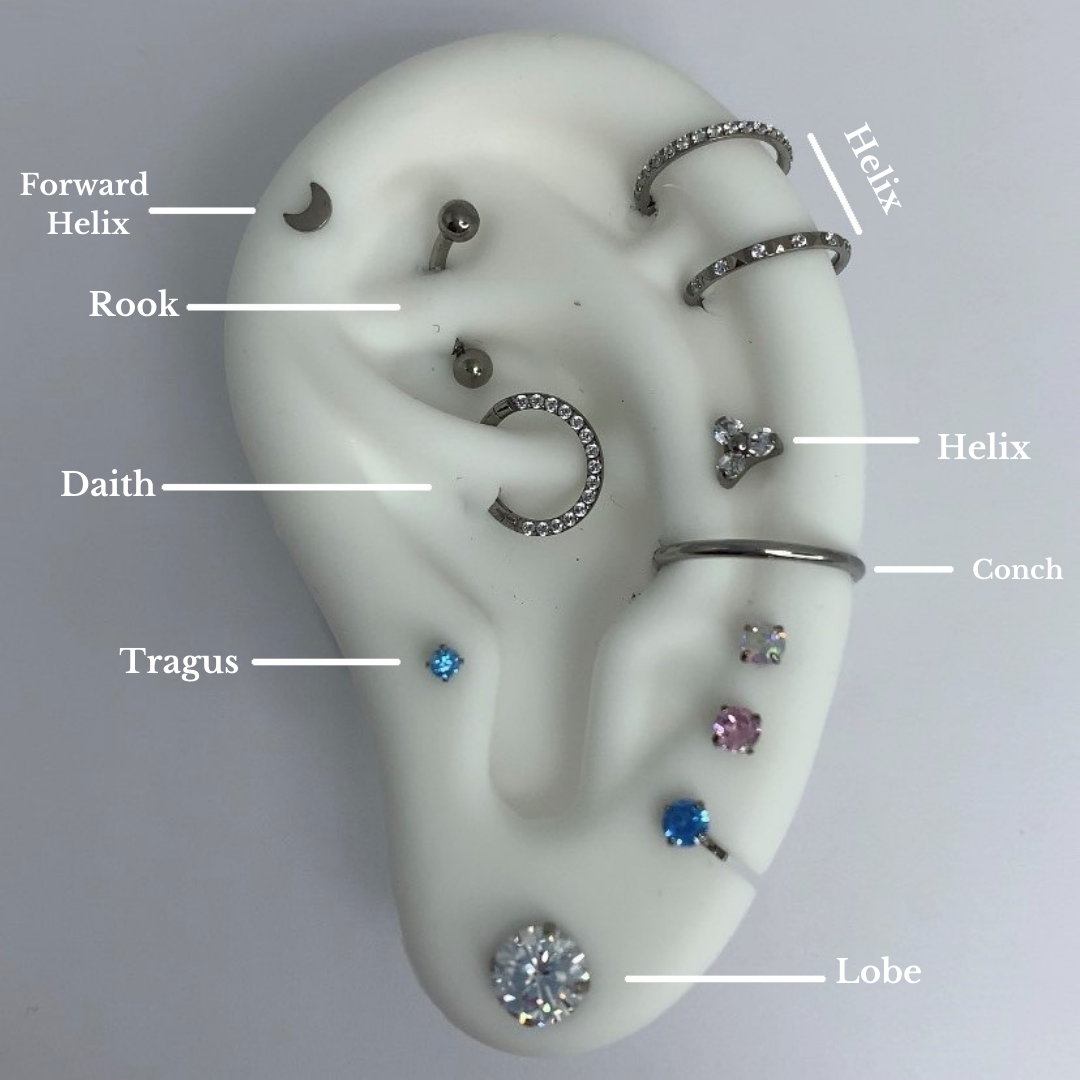
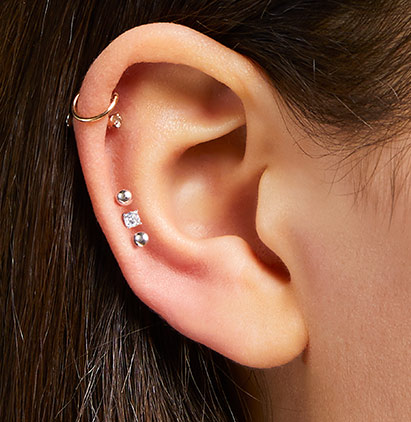
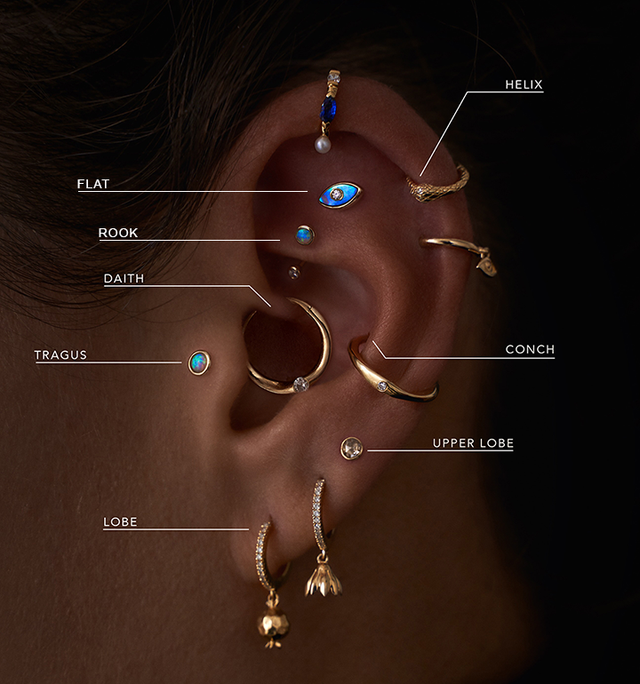
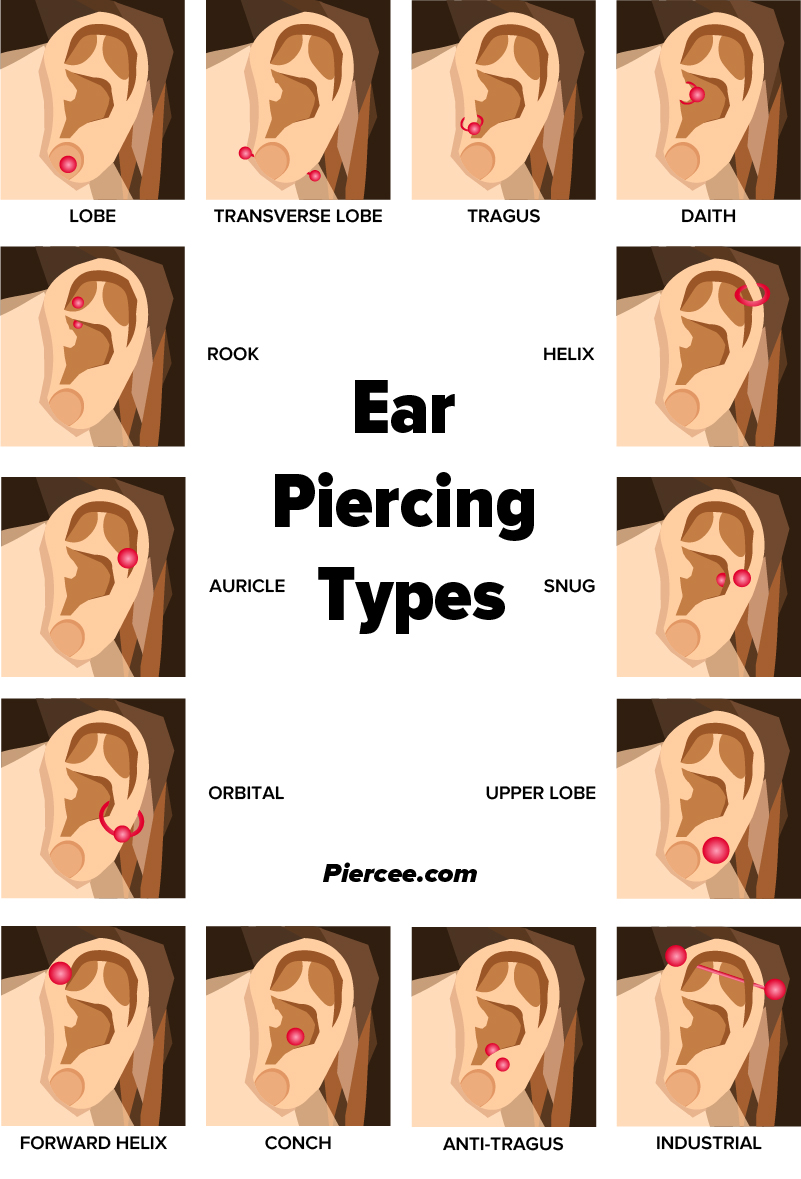
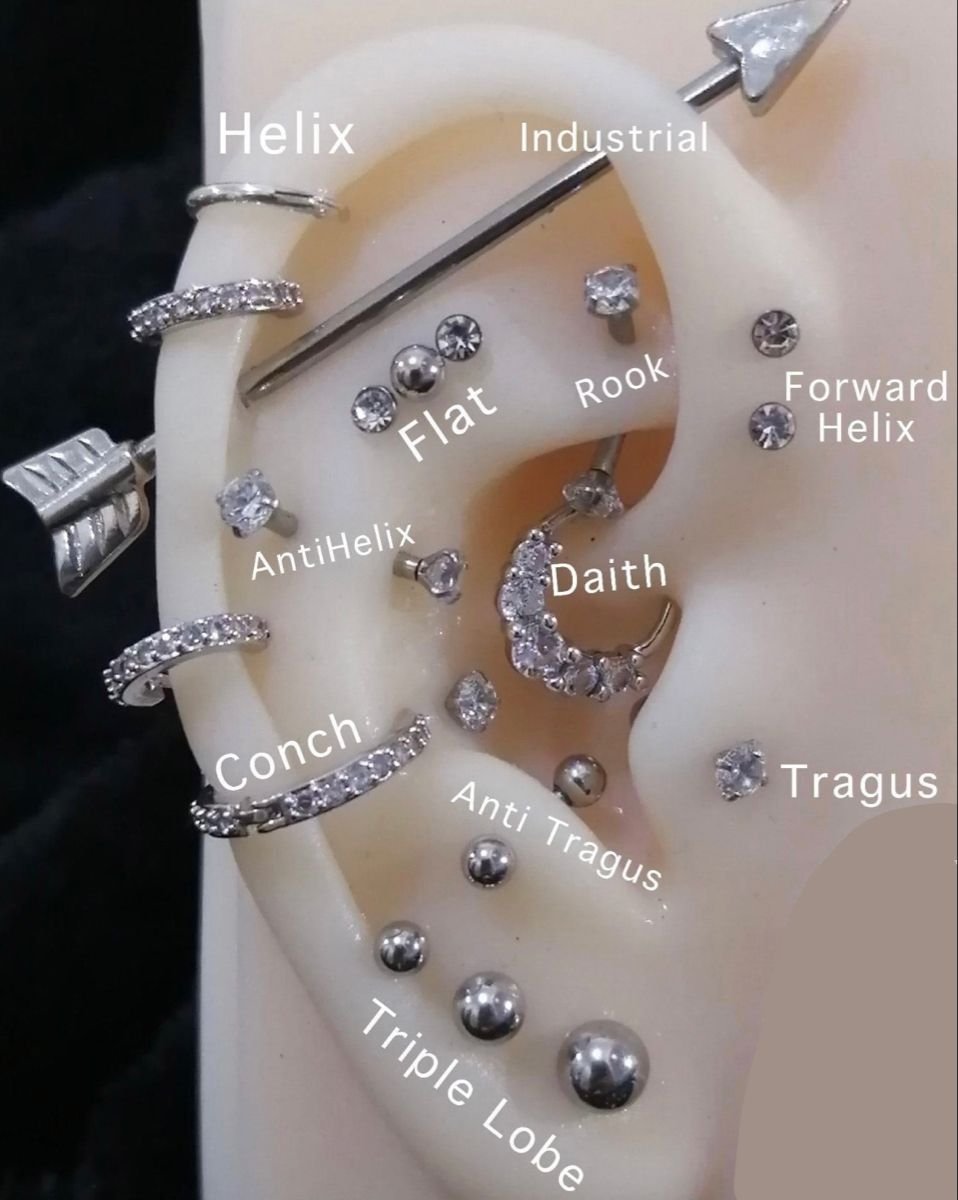

Closure
Thus, we hope this article has provided valuable insights into Finding the Perfect Ear Piercing: A Guide to Jewelry Stores Near You. We hope you find this article informative and beneficial. See you in our next article!
